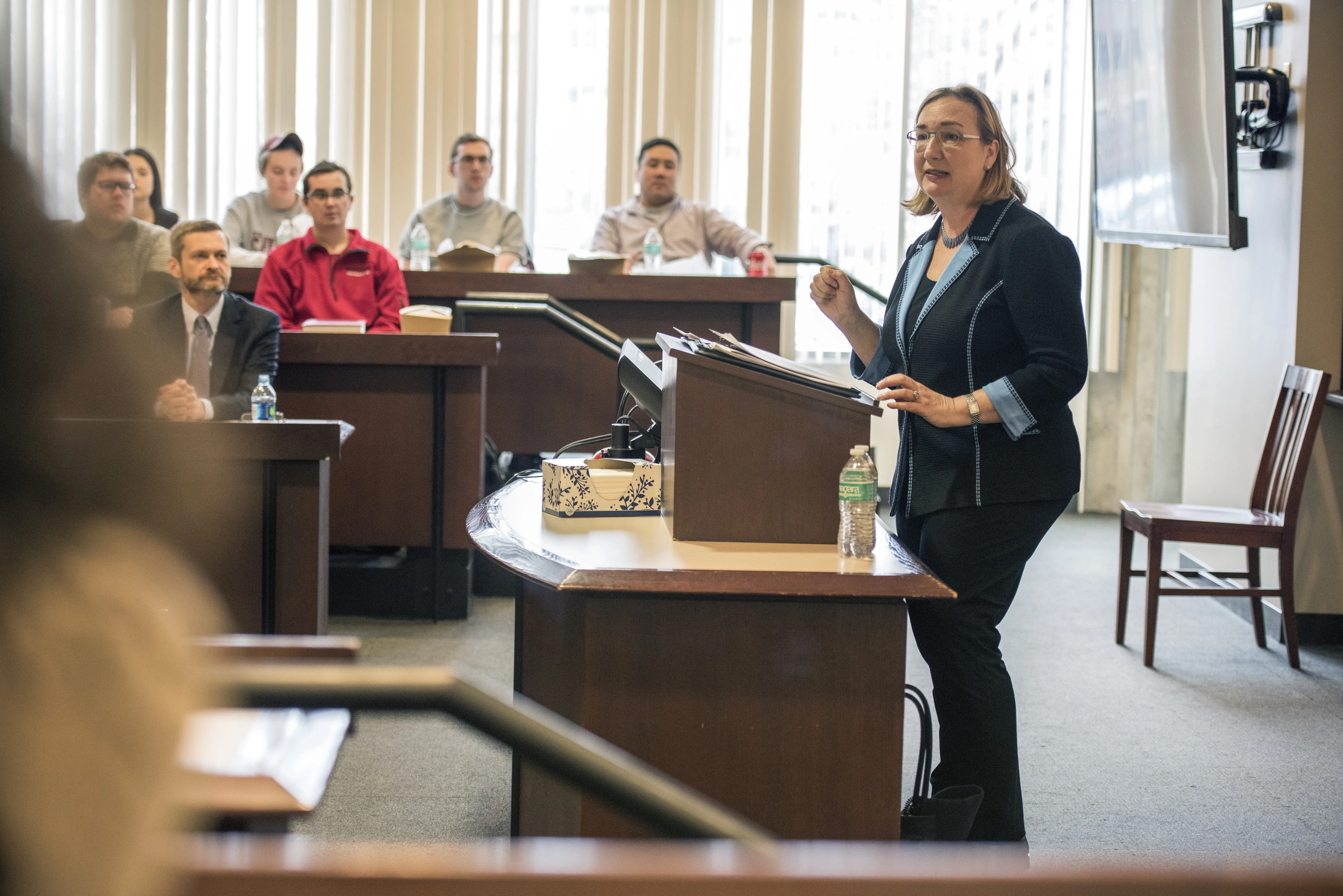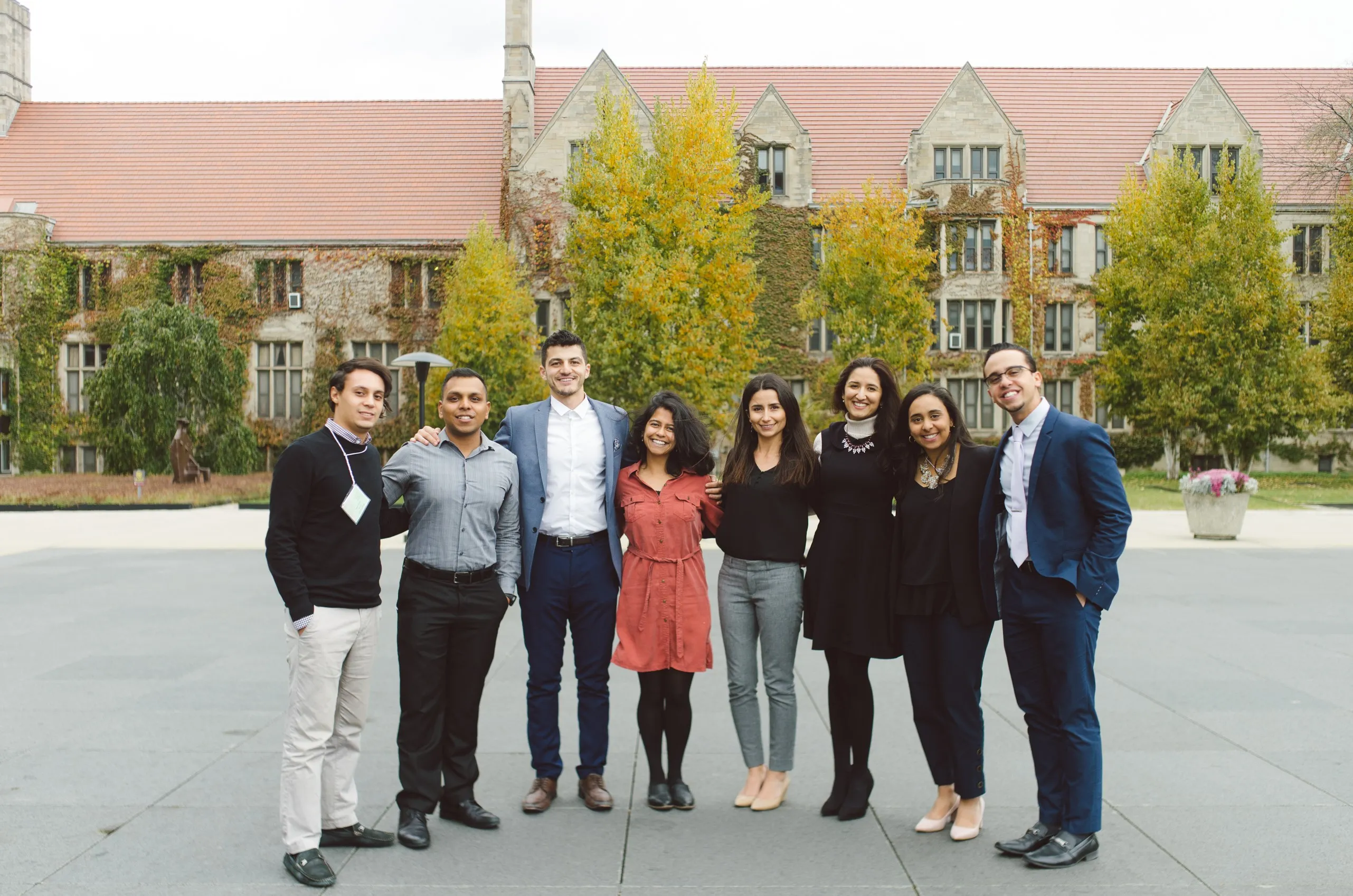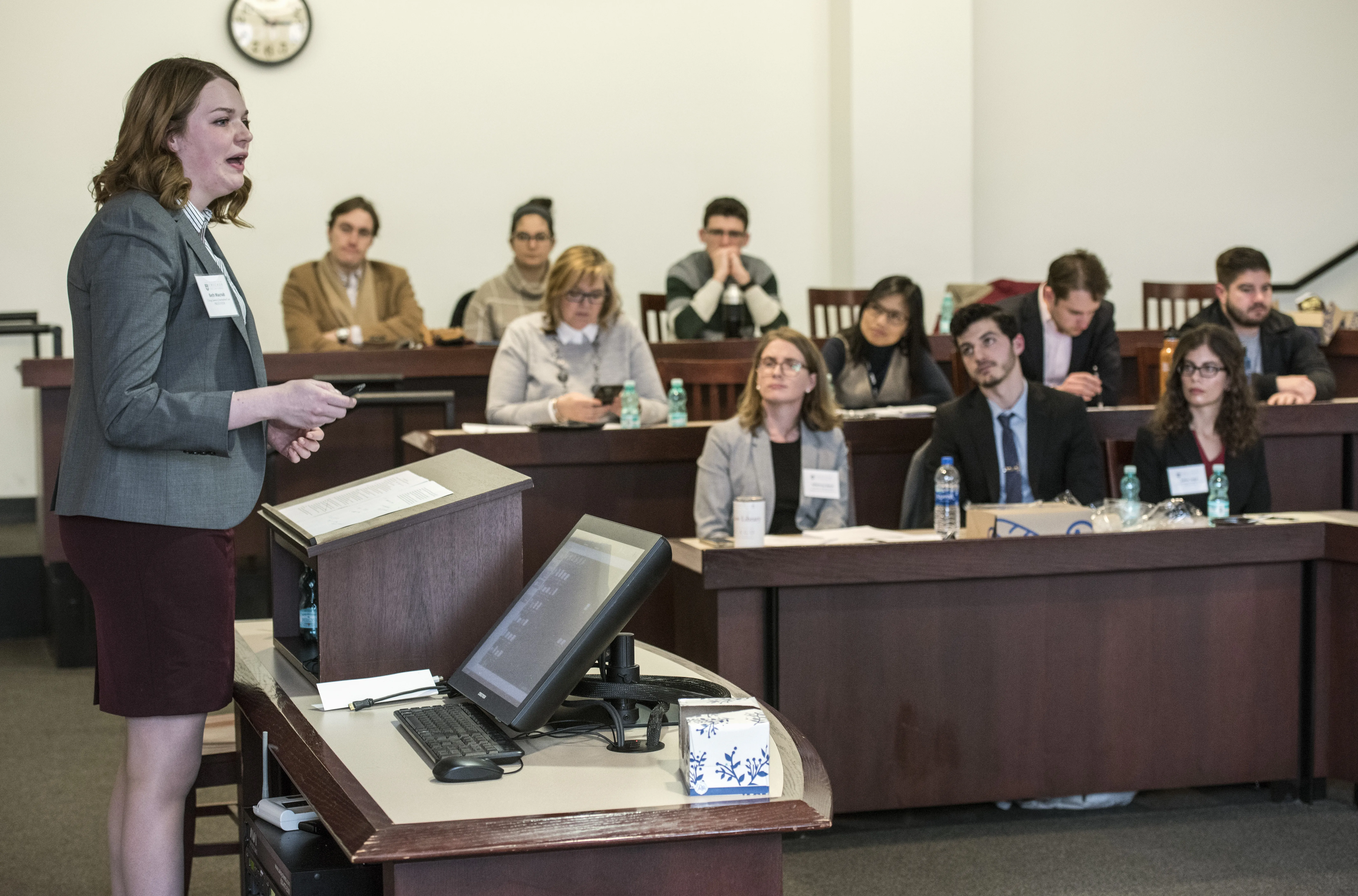Challenging the Culture of Sentencing

Chief Judge Beryl A. Howell of the US District Court for the District of Columbia has a message for the legal community: a shift in courtroom culture could improve the fairness and transparency of sentencing hearings. Legal scholars, she added, should examine how judicial practices might further that effort.
“Cultural entrenchment of sentencing practices by judges is real,” Howell said. “And the academy, to my mind, has a role to play in prodding judges to think afresh about how they conduct sentencing hearings.”
In a world where 97 percent of federal defendants plead guilty rather than risk a harsher sentence at trial, sentencing hearings provide a critical opportunity for judges to hear from defendants, victims, and the government. These “communal rituals,” to borrow a phrase from Judge D. Brock Hornby of the US District Court for the District of Maine, allow judges to explain to the public how they arrived at an appropriate sentence.
Speaking at an Edward H. Levi Distinguished Visiting Jurist lecture in November, Howell reflected on her experience as a judge and a former member of the Federal Sentencing Commission. When it comes to sentencing practices, “you don’t have to just sit in the culture of your court,” said Howell, who has embraced a set of practices designed to put defendants more at ease, minimize confusion, and increase transparency.
First, Howell emphasized the importance of letting defendants know when they will have the chance to speak. Rule 32 of the Federal Rules of Criminal Procedure does not specify the order in which participants talk to the judge. As a result, many judges simply follow the suggested order in the Federal Judicial Center’s Benchbook for US District Court Judges, which gives prosecutors the final say. By contrast, Howell believes that defendants should have the last word.
Howell’s conversations with incarcerated people revealed that many defendants were so nervous about precisely when in a hearing they could speak, that when the time came, they were caught off guard and did not say everything they intended. In the process, defendants may miss a vital opportunity to express remorse or highlight any extenuating factors that the judge should consider. By outlining precisely what will happen at each step of the proceeding, judges can help defendants receive a fair hearing.
The way that a sentencing judge invites defendants to speak can also set the tone. Phrases like “what do you have to say for yourself?” or “if you have anything to say, speak now” can have a chilling effect. To make defendants more comfortable, Howell acknowledges at the outset of the hearing how intimidating it can be to speak in open court.
She also recommends translating a lengthy criminal sentence from months into years and explaining the difference between a concurrent and consecutive sentence “in plain English,” so that defendants leave the courtroom with a clear understanding of how much time they will serve. These practices are not articulated in the Federal Rules, but they can spare defendants and their families from needless misunderstandings and confusion.
Finally, Howell encouraged judges to join her in automatically disclosing the probation officer’s sentence recommendation to the parties. Howell is the only judge in the District Court for DC who does so, and her position is evidently the minority view among federal judges nationwide. Nonetheless, Howell believes that disclosing the sentence recommendation is more in keeping with the adversarial process.
“One measure of the fairness of the sentencing hearing is that the participants know what material the sentencing judge has read or reviewed that may influence the outcome,” she said.
Disclosure enables the government and defense counsel to challenge the probation officer’s assumptions, thereby minimizing mistakes of fact or law. Years ago, even the presentence report was not made public, and parties were unable to correct inaccuracies that may have influenced the judge’s sentencing determination.
When Howell first began automatically disclosing sentence recommendations, probation officers were skeptical. Some feared that disclosure would damage their future relationships with defendants and hinder rehabilitation. Yet in jurisdictions like the Southern District of California in San Diego, there is already a culture of automatic disclosure, and probation officers found that such disclosure did not create problems.
Howell urged law students considering Comment topics to study this variation among federal district courts and analyze the consequences of that variation systematically. She indicated that such research would prove illuminating for the judiciary.
Faith Laken ’20, who attended the talk, was impressed by what Chief Judge Howell had to say.
“I admire her efforts to change cultural norms of the court and some of its longstanding practices to better serve parties and justice,” Laken said. “She’s identified areas that just don’t make that much sense and is doing what she can to fix them.”


